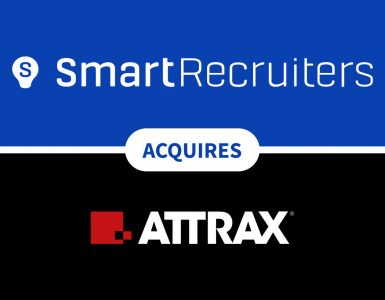Table of Contents
- What’s the difference between outbound and inbound recruiting?
- Which recruiting approach should you invest in?
- Outbound & Inbound Recruiting Checklists
- Finalize your inbound and outbound recruiting decisions
Normally, we’d start off an article like this reviewing recent challenges and breaking down buzzwords haunting the talent acquisition industry (hint: one of them rhymes with “Razor Sortage”).
However, we’re all aware of recent challenges and would like to avoid any extra stress facing recruiters. In fact, it’s that same stress that has pushed talent acquisition professionals to research and consider every approach, practice, and tool imaginable for a return on recruiting investments.
From those investigations, two approaches to recruitment have been discussed heavily: inbound recruiting and outbound recruiting.
Now, if you came to this blog hoping that we would pinpoint one approach as the ultimate solution to every single recruiting dilemma, you will be disappointed.
Instead, we’re breaking down the best use cases of both inbound and outbound recruiting in the context of different roles, industries, and how they address unique challenges. Then, you can decide which will make hiring easier for your organization in 2022.
What’s the difference between outbound and inbound recruiting?
In essence, inbound recruiting represents a more passive approach to recruiting that relies heavily on talent finding an organization or open job. It prioritizes employer branding and recruitment marketing efforts in hopes that talent will apply for open roles.
This approach takes shape in a few ways, including social media posts from employers, career sites, and job postings in places like LinkedIn and Indeed. Often, the target audience for this approach is active job seekers who are taking the time to look for and apply for new roles.
On the other hand, outbound recruiting represents a much more proactive approach to recruiting where talent acquisition teams don’t wait for talent to find their organization – they go out and find talent.
This approach can also take shape in a few ways, including open web sourcing for talent, directly emailing talent, and more. Often, the target audience for this approach is passive talent who needs to be convinced of why a new opportunity and organization are better suited for them.
Which recruiting approach should you invest in?
If we look at the market as a whole, we’re definitely experiencing a time where there are more jobs to fill than candidates available. As a result, many talent acquisition teams will not have as many applicants as they usually would for open roles.
While some organizations may not have faltered in terms of their results with their inbound recruiting approach, there’s an increasing trend towards outbound recruiting practices. Keep in mind your organization does not have to focus solely on one approach.
Below, we’ve provided checklists that might help you decide how much you’d like to invest in inbound and outbound recruiting.
Outbound & Inbound Recruiting Checklists
| Outbound Recruiting Checklist |
| In industries, like tech and healthcare, roles are exceedingly difficult to fill. With a high demand for talent, recruiters are going to need to go out and engage talent with competitors doing the same. For instance, hireEZ provides access to tech-specific platforms, like Kaggle, GitHub, and Stack Overflow along with tech-specific search parameters to help technical recruiters proactively find and engage talent. |
| If your organization has an ATS, you’re likely sitting on a unique pool of potential hires. Yet, most ATS platforms are filled with outdated information, including recent experiences, skills, and personal projects. EZ Rediscovery with hireEZ helps recruiters deduplicate, refresh and navigate candidate profiles during sourcing. |
| If your company is interested in hypergrowth and hiring in short periods of time, relying solely on applicants won’t do the trick. It will be even more difficult for less well-known companies. Those organizations will need to be proactive in looking for talent. |
| Looking to engage candidates directly in their inboxes instead of on platforms like LinkedIn? If you’re in a competition-heavy industry, you won’t be the only one reaching out to talent on places like LinkedIn. You’ll have to take the time to personalize outreach with access to candidate data and reach them directly. |
| Inbound Recruiting Checklist |
| Not struggling to receive applicants for open job postings or do not have a time crunch on filling a role. If you’re receiving hundreds of qualified applicants for each job posting, chances are you won’t need to spend the extra time going out looking for talent. Also, if you don’t have time constraints you can afford to wait for talent to apply. |
| Vested interest in building an employer brand and marketing efforts over an extended period of time. It’s never a bad idea to constantly keep talent informed about your brand (whether or not they apply for a role) in the long term this will help branding so continuing marketing efforts is beneficial for that. Whether on social media or through other marketing campaigns, continue to push out content about your company that will strengthen your brand and make yourself top-of-mind for future applicants. |
Finalize your inbound and outbound recruiting decisions
With every organization having different processes, priorities and challenges, it’s tough to give a one-size-fits-all solution for recruiting. However, with reference to the checklist above, you should be able to determine where your organization may need to lean more heavily into either inbound or outbound recruiting. However, with today’s candidate-driven market, the proactive approach to outbound recruiting is one that more organizations will need to consider as they try to secure talent.
Interested in seeing outbound recruiting in action? Find out how hireEZ can help.





























